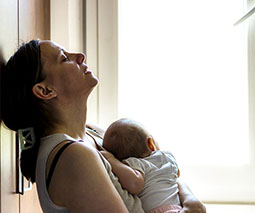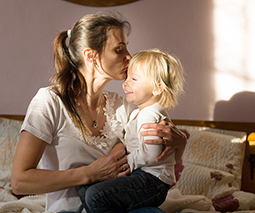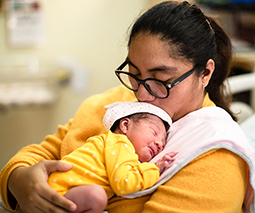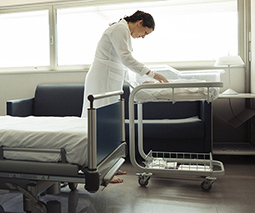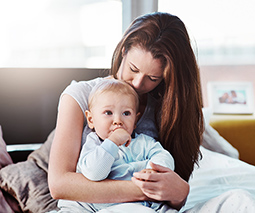“This is not my baby”: Chezzi Denyer opens up about perinatal anxiety diagnosis
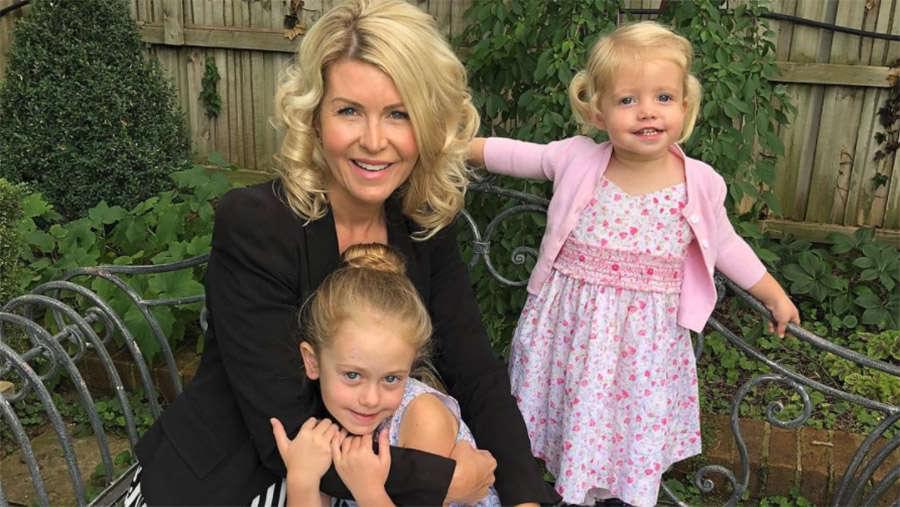
One in five expecting or new mothers and one in ten fathers will be affected by this perinatal depression and anxiety, this is Chezzi Denyer’s story.
When Chezzi Denyer was first handed baby daughter Sailor, she didn’t recognise her the way she thought she would.
“I kept saying ‘this is not my baby’ but my husband patted me on the head and said, ‘Yes she is’.”
For founder of Mummy Time TV and PANDA ambassador Chezzi, in retrospect, this was the moment she knew something wasn’t right.
But it took a further eight and a half months before she was diagnosed with perinatal anxiety.
Every year 100, 000 Australian families will be affected by this perinatal depression and anxiety; that’s one in five expecting or new mothers, and one in ten fathers.
Chezzi Denyer on PANDA Week or her experience with postnatal anxiety
This week is PANDA (Perinatal Anxiety & Depression Awareness) Week. Chezzi Diaries joins Shevonne Hunt Presenter to talk about her journey with postnatal anxiety after the birth of her daughter and struggled to get a diagnosis. Reach out to the PANDA Helpline on 1300 726 306.
Posted by Kinderling Kids Radio on Monday, 12 November 2018
Chezzi told Kinderling Conversation‘s Shevonne Hunt that Sailor’s traumatic birth was the real trigger for her.
“I had no history of mental illness and was very good at concealing things and pretending that I was okay – at least I thought I was, “ says Chezzi.
“I didn’t have that instant bond with my daughter that lots of my friends had and I believe that’s because of the way she came into the world.”
Chezzi, like many first-time mums, had a strict birth plan.
“I was adamant I was having a vaginal birth because I hate needles and I was afraid,” says Chezzi. “But none of that went to plan.”
Sailor was born by emergency c-section and Chezzi describes a feeling of complete dissociation:
“It was like I was watching my own birth from the roof, as the doctors cut Sailor out of me,” says Chezzi.
‘I didn’t have the newborn bubble’
After the birth, Chezzi’s catheter bag fell off the hospital bed and tore her urethra which left her in a lot of pain. Then her best friend, who’d visited the first night she came home from hospital, had a very life-threatening car accident.
“I had a really long recovery so didn’t have the newborn bubble. And even though I got through each challenge, when everything went back to normal I just started to not feel quite right … didn’t feel myself.”
The normally even-tempered Chezzi describes a confusing time where one day she would be “fine and happy and love playing with my baby and other days, moody, panicked, frustrated with bouts of uncontrollable anger”.
“I went back to work too early, because I thought I needed that normality – but I look back now because I think, ‘What was I doing?’ Life on the road with Sunrise was hectic with lots of travel and not much down-time. It was a great distraction from having to sit with my thoughts, but I was exhausted,” says Chezzi.
‘I didn’t think I was a very good mum’
Months followed where Chezzi found herself with dark thoughts.
“I knew something wasn’t right and I’d constantly think I wasn’t a very good mum. When Grant [her husband] checked in on me, I would fly off the handle,” says Chezzi.
‘He was confused. One the one hand, I appeared to be loving life and on the other, I was really, really angry and lashing out at him. I think he thought I was having an affair.”
Eventually, Chezzi consulted with her GP who did a postnatal depression test – but she got a really low score.
“One doctor suggested I try Xanax, another said counselling. But nobody could tell me that I was suffering from postnatal anxiety. I was even doing my own research and found nothing,” says Chezzi.
Everything came to a head after Chezzi suffered from her twelfth bout of mastitis and her doctor suggested she give up breastfeeding earlier than Chezzi had planned.
“I had a mini-meltdown. I was a wreck. I screamed at my husband and told him I wasn’t coping, and that I couldn’t be a mother,” says Chezzi.
“I was so scared that when I told him that, he’d leave me and that they’d take Sailor away from me.”
Of course, nothing like that happened – Chezzi and Grant visited the GP together and Chezzi says she felt enormous relief.
“When I started talking, it all just poured out of me. I was crying and it didn’t make sense. The doctors said they knew I had bottled so much up because I was jumping back and forth and what I was saying wasn’t in chronological order.
“Everyone’s reactions were so much better than I thought they’d be. It actually helped me to start a big conversation, that was so helpful to me. Sometimes telling my story is a bit painful but every time I do someone contacts me and says thank you for helping them share their own,” says Chezzi.
The road to recovery – the things that helped Chezzi
“Know that help is out there and that you don’t need to suffer alone,” says Chezzi.
“You do recover and life is great. I went onto have another child and everything was okay because I felt more prepared.”
In terms of practical day-to-day treatments, Chezzi found meditation and cognitive behaviour therapy really useful.
“It also helped me to work on my big triggers; to unpack and talk about my birth experiences.
“Just know this is so common and so treatable.”
Concerned about yourself or a family member? Check out the Mental Health Checklist on the PANDA website.
This post was originally published on Kinderling Kids Radio. Download the Kinderling app for more great stories.

